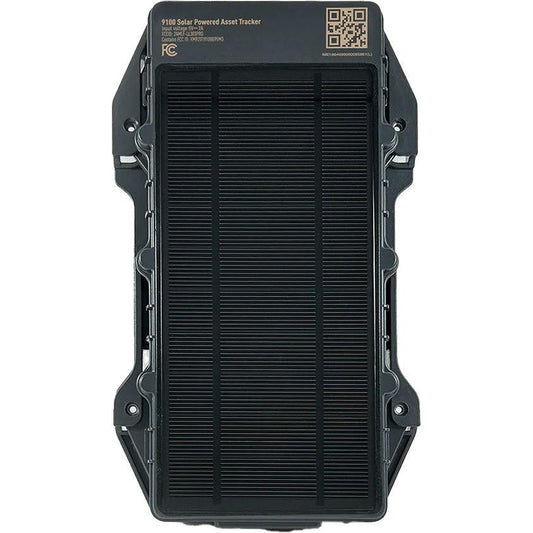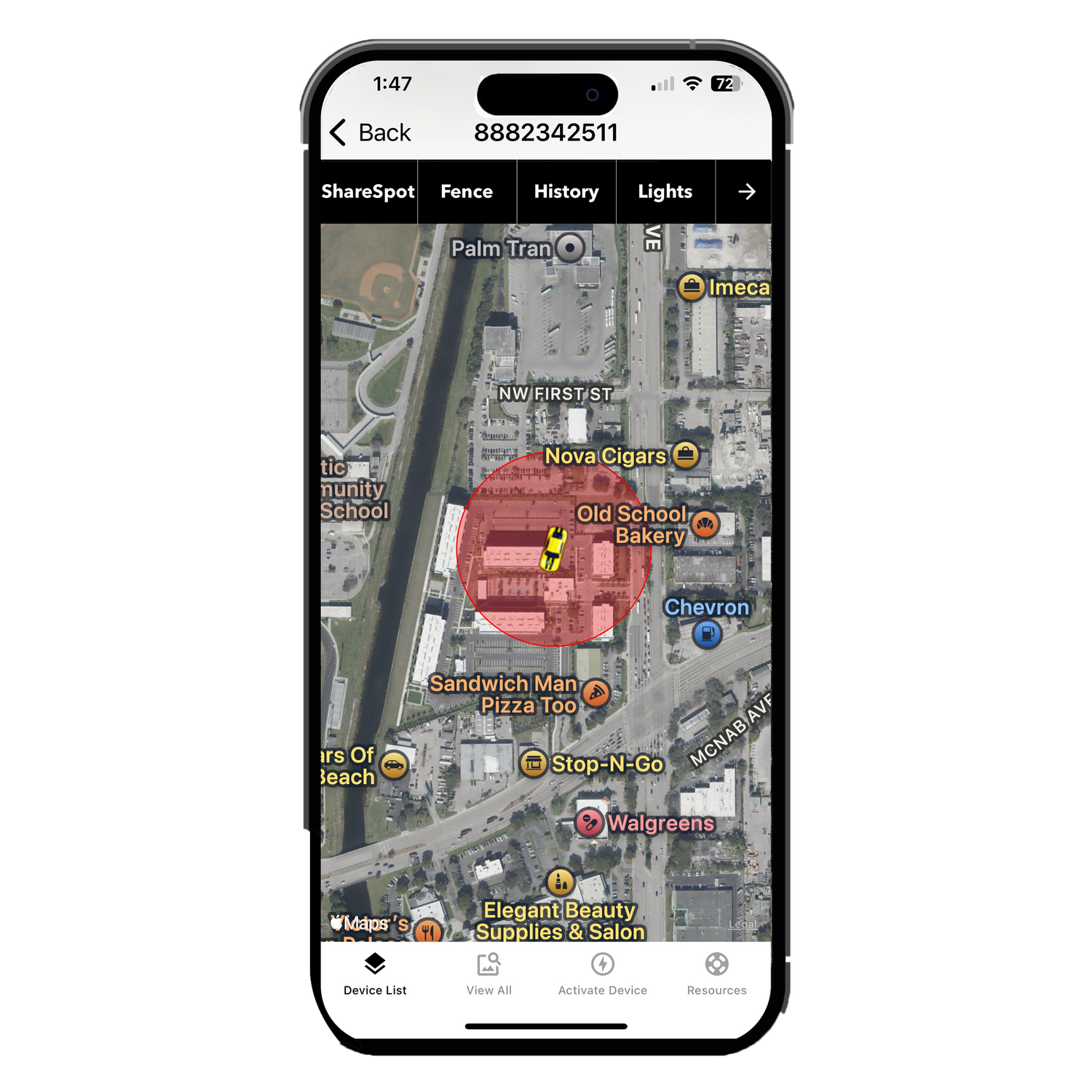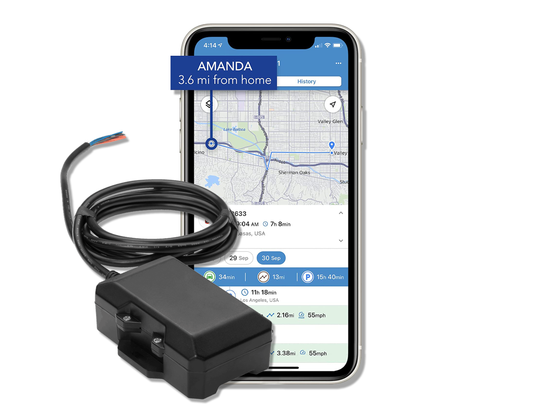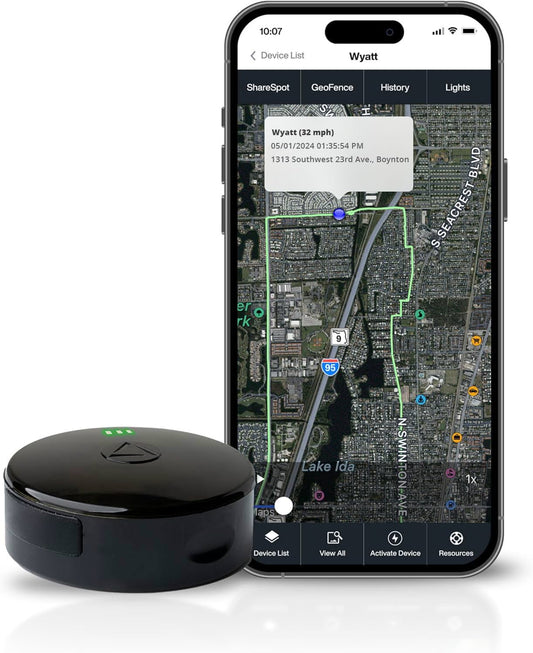Collection: Products
-
Dash Camera With GPS Tracker
Regular price $399.00Regular price Sale price $399.00Unit price / per$499.00You Save $100Sale -
Everlast - Real Time GPS Tracker
Regular price $169.00Regular price Sale price $169.00Unit price / per$269.00You Save $100Sale -
GPS Tracker Detector & Hidden Camera Finder
Regular price $99.00Regular price Sale price $99.00Unit price / per$199.00You Save $100Sale -
Hardwired GPS Tracker With Kill Switch
Regular price $249.00Regular price Sale price $249.00Unit price / per$349.00You Save $100Sale -
LandAirSea - No Monthly Fee GPS Tracker
Regular price $249.00Regular price Sale price $249.00Unit price / per$349.00You Save $100Sale -
OBD2ii GPS Vehicle Tracker
Regular price $249.00Regular price Sale price $249.00Unit price / per$349.00You Save $100Sale -
PowerDrive - Magnetic GPS Tracker
Regular price $249.00Regular price Sale price $249.00Unit price / per$349.00You Save $100Sale -
 Sale
SaleSolar Powered GPS
Regular price $199.00Regular price Sale price $199.00Unit price / per$299.00You Save $100Sale -
SpaceHawk Mini GPS Tracker
Regular price $89.00Regular price Sale price $89.00Unit price / per$189.00You Save $100Sale
What Is A GPS Tracker?
A GPS tracker is a device that lets you know exactly where your vehicles or equipment are, anytime you need. It’s pretty straightforward: a small tracking device on your vehicle uses GPS signals to get its location, then sends that info to an app or website through a cellular network. You can check in from your phone or computer to see where everything is, whether it’s on a delivery route or at a job site. This technology helps you keep an eye on driver activity, avoid unauthorized use, and protect your assets. If you want better control over your business operations, GPS tracking can give you that visibility.

How A GPS Tracker Works
Step 1: Activate and Set Up Your Tracker
Log in to your tracking platform and enter the device’s ID number to link it to your account. Customize your settings—like geofencing alerts and speed notifications—based on what’s most important for your business.
Step 2: Install the GPS Tracker
Mount the GPS tracker securely on your vehicle or equipment. Make sure it’s in a discreet yet optimal location, such as under the vehicle or in the rear of a trailer. If it’s a magnetic tracker, simply attach it to any metallic surface.
Step 3: Monitor and Manage from Anywhere
With your GPS tracking device activated, use the online platform or app to view real-time updates. Check the location, speed, and travel history of your assets, and receive instant alerts. If you need to adjust settings or run reports, you can do it all remotely—no matter where you are.
GPS Tracking - Monitor Vehicles & Assets, Anytime Anywhere
GPS tracking isn’t just for big fleets anymore—it’s something any business can use. Whether you’re managing service vehicles, delivery vans, or rental equipment, having the right tools makes a difference.
With portable GPS trackers, AI dash cams, and real-time tracking, you’ll solve problems fast and avoid unnecessary headaches.
If your team is on the road, real-time GPS tracking keeps you in the know. You’ll see where they are, how long jobs take, and spot if side trips pop up. Fewer detours mean more time doing the work that matters and keeping customers satisfied. Plus, if a delivery gets held up, you’ll have live updates ready—no scrambling required.
Portable GPS trackers are also handy for high-value assets like construction equipment. Stick a magnetic tracker on a bobcat or trailer, and you’ve got a better chance of recovering it if stolen. That beats filing insurance claims and losing precious time on the job.
AI dash cams add another layer of security by recording incidents and flagging risky driving. Catching hard braking or speeding early helps keep your drivers safe and can even bring down your insurance costs.
In the end, these tools help your business stay on top of things. Whether it’s monitoring vehicles, recovering equipment, or keeping drivers safe, GPS tracking helps you run smoother—and gives you peace of mind.

What To Look For When Buying A GPS Tracker Device
Real-time tracking
Get instant updates on location, so you’re never left wondering.
Battery life that lasts
Fewer recharges mean more time tracking and less hassle.
Portable and lightweight
Compact designs fit anywhere—no need to worry about bulky gear.
Magnetic mount
Snap it onto vehicles or equipment with ease, no tools required.
Built for the elements
A waterproof tracker stays reliable, rain or shine.
Geofencing alerts
Know right away if something leaves the boundaries you set.
Mobile app access
Check locations from your phone anytime, anywhere.
Dependable support
Get help from real people when you need it most.
Clear subscription plans
No hidden fees—just straightforward pricing you can count on.
GPS Tracking FAQs
Do All GPS Trackers Require A Monthly Fee?
Most GPS trackers come with a monthly fee, usually between $9.95 and $34.95 for real-time updates. The higher the cost, the faster your updates. Want 3-second updates instead of once a minute? You’ll be on the higher end. Some trackers include a full year of service, and many companies offer discounts if you pay up-front. Therefore, find an pick the plan that fits your business' GPS fleet tracking needs.
What Is The Best Way To Track My Vehicle?
If you want easy installation and detailed driving data, an OBD2 GPS tracker is a solid choice. These GPS tracking devices draws power from the vehicle via the OBD-II port, so you never have to worry about recharging. Need something more discreet? Go for a hardwired tracker. The can be hidden out of sight and also won't require charging, and some even offer a starter disable feature. Finally, there’s going with a portable GPS tracker. These are great for asset management or secretly tracking vehicles, but they will have limited battery life so be mindful of that. So, think about what matters most for your business—visibility, ease of use, or battery life—before making a decision.
Can I Legally Install A GPS Tracker On Someone Else’s Vehicle?
Generally, it’s illegal to put a GPS tracker on someone else’s car without their permission. Every state has its own rules, so double-check local laws before using a tracking device. If you’re a business owner and want to keep tabs on company cars, it’s super important to have a GPS tracking policy that spells out employee consent and privacy. This helps protect your business and shows you respect your team’s boundaries. Always talk to a legal expert to make sure you’re playing by the rules.
Should Companies Use GPS To Track Employees?
Using GPS tracking on your company vehicles is a smart move. GPS vehicle trackers not only boost efficiency but also keep your fleet safe. With tracking in place, you can quickly handle things like breakdowns or unauthorized use. Just remember to talk openly with your drivers about it and highlight the perks—quicker routes, saving on fuel, and better vehicle security. Setting up a clear GPS policy upfront helps everyone understand the benefits and keeps things running smoothly.
What Is The Role Of The Almanac In GPS Trackers?
The almanac in GPS systems is a key component that helps your GPS tracking device quickly connect to satellites. It’s a database stored in the GPS receiver that provides general information about where each satellite is in orbit over several months. While it’s less precise than ephemeris data (which gives exact satellite positions for a few hours), the almanac helps your GPS tracker predict which satellites should be visible at a given time and location. This allows your device to acquire satellite signals faster, reducing the time it takes to get accurate location data—especially useful for tracking your fleet in real time.
You can learn more about the role of the almanac in GPS by visiting Penn State University.
Can An Average Person Detect A GPS Tracker Easily?
No, our GPS vehicle trackers are built to stay completely hidden. These small, discreet devices can be tucked inside or outside a company vehicle without being noticed. Unlike Apple AirTags, which might show up on a driver’s phone via Bluetooth, our trackers are designed to stay undetectable. That’s why law enforcement and Fortune 500 companies rely on them. With our GPS, you can monitor your fleet, and no one will even know!
You can learn more about the difference between Apple AirTags and GPS trackers by clicking here.





